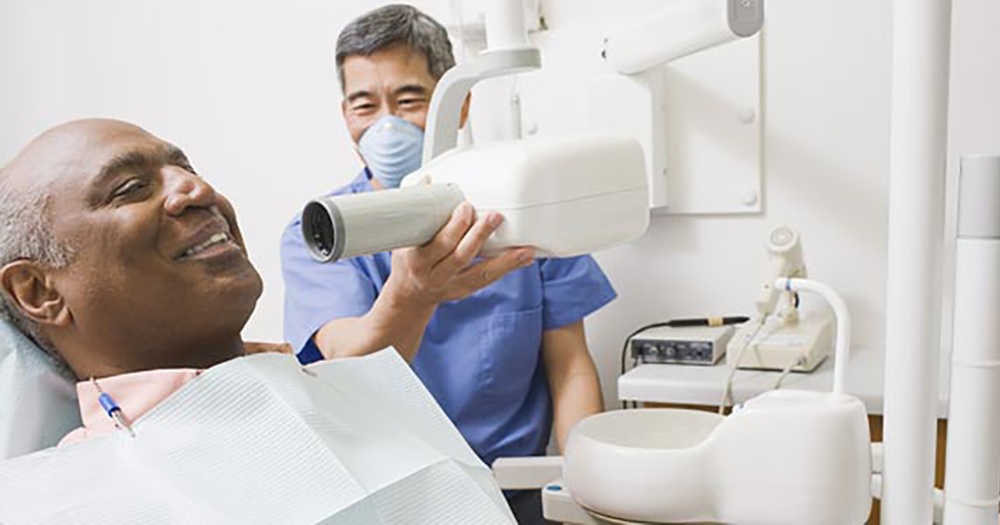
Just paying your bills when you’re on a fixed retirement income can be challenging for many seniors. Trying to have a little left over at the end of the month to enjoy your retirement can be even harder.
Unfortunately, many seniors find themselves having to choose between products and services that are all legitimate needs, because they can’t afford all of them. One of the services that often ends up being neglected is dental care, especially if there aren’t any current, painful issues. It may start to be considered a “luxury” because it’s not included in Medicare, and many seniors find themselves paying out-of-pocket for dental care.
Why dental care is so important for seniors
Maintaining oral health is vital for everyone, regardless of age. But, like most health-related needs, it becomes even more important as we get older.
Good oral health goes far beyond keeping your natural teeth and controlling bad breath. Maintaining your teeth and gums can protect you from dangerous infections that can spread from your mouth to more vital organs like your heart, lungs, and brain. Failing to protect teeth can have serious consequences, especially for older individuals with compromised immune systems.
On the positive side, having your mouth routinely examined by a professional provides an excellent opportunity to identify serious health problems like high blood pressure, risk of stroke, and even cancer, that may otherwise be overlooked. Certain conditions will often present with notable signs on the gums, tongue, and other soft tissue in your mouth that your dentist will recognize.
As effective preventive care, maintaining your oral health can be highly beneficial, especially for seniors who are prone to more prevalent and more serious health concerns.
How to save on dental care in retirement
Of course, these facts don’t make dental care more affordable for seniors on a tight budget. So how can you afford to care for your teeth and gums without boosting your income? Learn more about discounted senior dental care.
There are three practical ways to save on dental care that seniors should consider before deciding to skip an investment in their oral health.
Prioritize self care

"On the positive side, having your mouth routinely examined by a professional provides an excellent opportunity to identify serious health problems like high blood pressure, risk of stroke, and even cancer, that may otherwise be overlooked. "
Although it’s deceptively simple, maintaining your own oral health through proper self care habits is one of the best possible ways to save on dental care. If you’re taking good care of your teeth and gums at home, you’re definitely going to run into less unexpected, painful surprises that require paying a professional to assist. The supplies are inexpensive and readily available.
- Brush at least twice a day for two minutes each time, using a soft-bristled brush and quality toothpaste.
- Floss at least once a day.
- Rinse routinely with antibacterial mouthwash.
Keep up with your semiannual dental exams and cleanings
While it’s tempting to save some money by neglecting your semiannual cleaning and exam if you’re experiencing no acute problems, the risk isn’t worth the reward. Even when nothing is obviously wrong with your teeth or gums, a professional cleaning accomplishes what no amount of self care at home can do, and your dentist’s examination is the key to verifying there are no underlying issues forming that you’re unaware of.
The best option is to make your appointments well in advance, mark them on your calendar, and budget for them ahead of time to make sure you’re not tempted to skip them when the time comes.
Use a dental discount card
If you rely on Medicare for your health insurance, you likely have no coverage for dental care. Since cost is such a motivating factor for seniors on fixed incomes, a dental discount card offers an excellent option for convenient, affordable care.
The Dental Solutions discount card program offers 20%-50% off the retail cost of both standard and advanced dental services for less than $10 a month.
If you’re a retiree looking for ways to save on dental care, start with these three simple steps and enjoy the benefits of excellent oral health.

